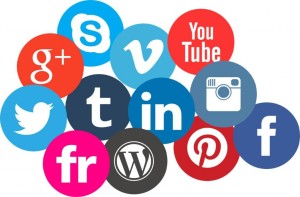Anita Sarkeesian’s started her website “Feminist Frequency” in an attempt to create feminist media criticism. She later went on to create a YouTube video series “Tropes Vs. Women” that focuses on stereotypes concerning women. She actually began her talk at the Digital Ethics Symposium this past weekend by showing one of these clips, “Damsel in Distress” which emphasized stereotypes on women in video games. This Damsel in Distress that Sarkeesian talked about centered on the idea that women are unable to be heroes and are instead dependent on males to be their heroes. On video games, women are so often placed as simply just sexual beings. Sarkeesian actually stated in her talk that the video game industry makes millions of dollars each year and is surprisingly bigger than Hollywood. All in all, placing women in these roles on video games indicates a larger social problem. While video games are portrayed virtually, they represent a very ‘real’ world. They indicate that our society views women as sex objects and ignores the fact that there is so much more depth behind just our image.
Sarkeesian also points out that many people often have the mindset that if a woman does happen to make it in a male dominated field, like business or engineering, she must have cheated to get there. This typically known stereotype is similar to the relations between video games and women. Video games are not typically seen as ‘for women’. In fact, society basically tells us that games are just not for us. Sarkeesian’s parents did not allow her to have a Gameboy in that Gameboys were for boys. I can definitely relate to this in that I grew up around two brothers, where a large part of their childhood and teenage years involved playing video games that I was never invited to play. I was a girl so I just wasn’t skilled at video games, according to them. Instead I was given Barbie’s and EASY-BAKE ovens to play with, because those are what girls are supposed to play with. But in reality, there is a large community of female gamers who the video game industry fails to take into account.
However with every opinion especially those regarding controversial topics like feminism, there is an opposite opinion. Because of Sarkeesian’s strong opinions and all the ways in which she made/ continues to make these opinions public have resulted in her receiving death threats. In fact, an actual group of gamers who use the hashtag #gamergate has formed in response. This group of hashtagers hold the idea that the world of gaming should be exclusively men. Basically, it is a group of sexist men who are the very reason women are portrayed as sexual roles in video games in the first place. These men believe that games are only for guys, which is the reason that Gameboys have the word boy in it rather than girl.
In my opinion, everything that Sarkeesian touched on directly related to the concept of gender socialization or in other words, the process by which society tells us how females and males ‘should be’. Society tells us how we should ‘do’ gender, and in turn, certain things are assumed to be primarily for girls while others are primarily meant for boys. Video games is one of those things that seems to always be targeted to men, however, I was extremely shocked to the fact that there are men out there who felt the need to send her death threats just because she expressed her opinion on a situation. I think these death threats and groups of gamers who have formed against her are the reason in which security is such a significant part of Sarkeesian’s everyday life. It’s a horrible thing to feel unsafe, and something that nobody deserves to feel, especially as a response to trying to encourage gender equality through a simple online video.



